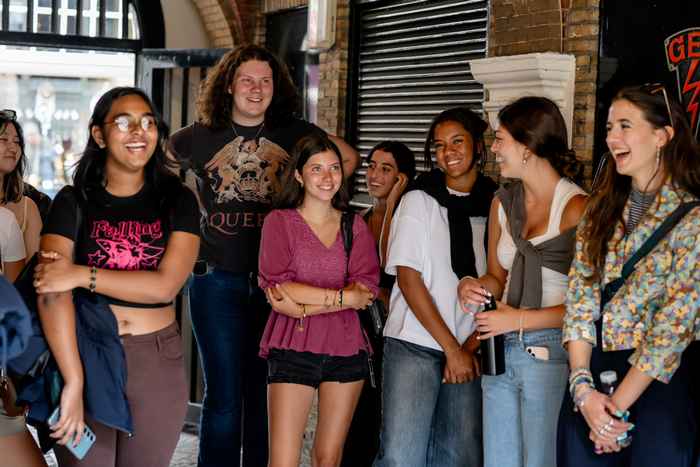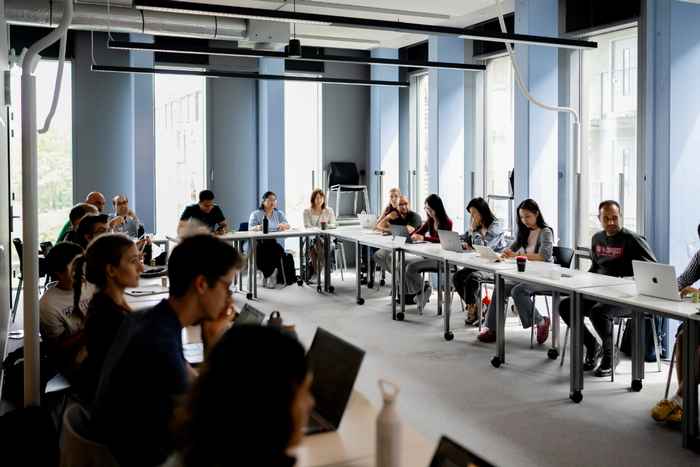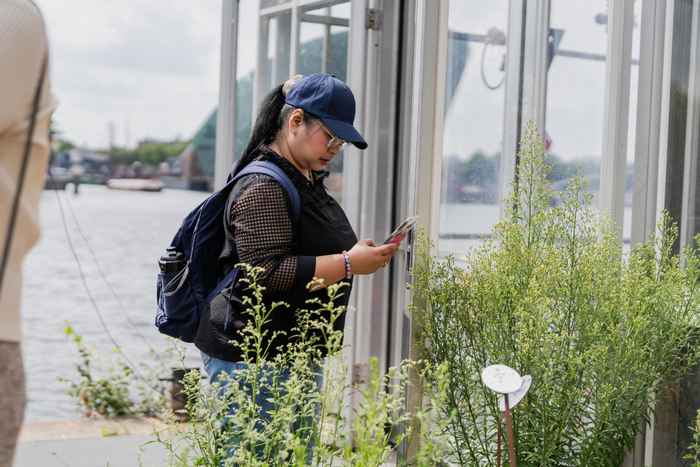Pre-University Honours Programme: Sustainable Thinking
Working towards a sustainable society means learning to live in harmony with our natural environment whilst consciously making changes which allow future generations to flourish. Young people today have grown up in a world where sustainability is one of the most pressing issues. But aside from its definition, what does it really mean, and how do we implement best practices in order to ensure a liveable future for ourselves and the generations that will follow? This summer programme will bring together high school students from across the world to study an important topic at the university level.



-
Programme at a glance
Mode of instruction: On-campus (2 weeks) Academic dates: Tuesday 15 July - Thursday 24 July 2025 Housing dates: Monday 14 July - Friday 25 July 2025 Academic fees: €1675. Read more about what is included in the fees.
Housing fees: €800 for a shared room and shared facilities, and daily breakfast and dinner. All pre-university programmes will be housed at Stayokay Hostel Amsterdam Oost. Students will be placed in shared rooms with a maximum of six people of the same gender. Registering for housing is mandatory. Final admission deadline: Saturday 15 February 2025 Who is this programme for? For current high school students (must be 16+) interested in sustainability, enviromental studies, feasability of sustainable practices and how these can be carried out by individuals, governments and organisations. -
Programme description
We are becoming more aware as a society that many of our habits are unsustainable. This two-week programme will delve into how we can change our ways in order to keep our planet habitable. We will explore sustainability in various dimensions, such as individual, organisational, political and more. This programme will ultimately give you insights to apply sustainable thinking to various contexts, so that you can incorporate this into whichever career you follow.
Approaching the concept of sustainability requires us to first determine what we are trying to sustain. This could be ourselves, the environment, or a company. The Sustainable Thinking programme explores the ability to sustain “the self”, “the planet”, “the organization”, and, as the course progresses, the interconnectedness of all three.
Using the awareness developed in “the sustainable self” and the knowledge gained in “the sustainable planet”, students adopt the mind-set of “the sustainable entrepreneur” operating in a complex and dynamic multi-stakeholder environment. In this process we will acquire skills, develop the knowledge and shape the attitude on their path to becoming well-versed, interculturally aware, global citizens.
-
Academic director
Ernst van Weperen is a lecturer, researcher, and freelancer that has worked in non-for-profit, for-profit and academia in a career spanning two decades. Starting as a project manager research at the Association of Investors for Sustainable Development, he soon moved to a consultancy role, first in his own business and later at Deloitte where his primary role was to integrate sustainability into all core activities of the organization. However, he really found his passion in higher education; which he now translates both at a university of applied science, and as a freelancer in various other educational institutes. " The applied educational environment where students work with future employees is hugely gratifying because it has the potential to help students overcome potential challenges they might face, and it can help them to find out what drives them". Personally, he firmly believes that global society faces enormous environmental, social and economic challenges that must be addressed soon. He also believes that companies, in collaboration with their environment, are in a unique position not only to address these global challenges, but also to use them as an opportunity and driver for innovation and inclusive growth.
-
Explore our community
Want to get to know more about studying at the University of Amsterdam? Follow us on social media and join our summer community. Get a feel for our summer school vibe and our academic and social community, and learn about studying with us through the eyes of past summer school students.
Instagram | Facebook | LinkedIn | Twitter
Looking for an alumni perspective? Read this interview with Grace Forrest, who attended the Pre-University Honours Programme: Politics & Identity in summer 2018.
- Mode
- Short-term
- Credits
- 0 ECTS, 2 weeks
- Language of instruction
- English
- Starts in
- July